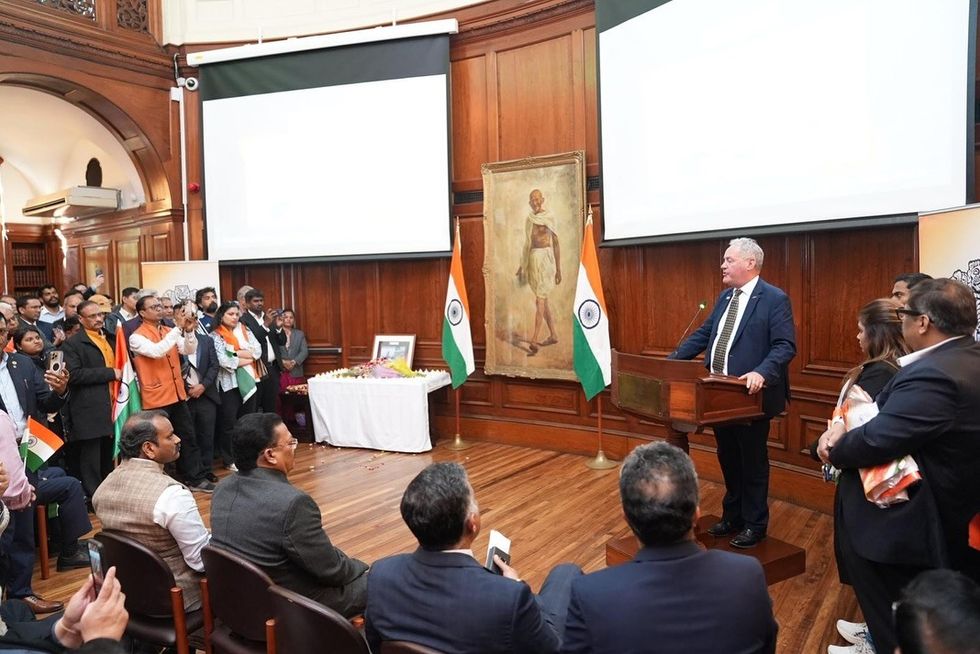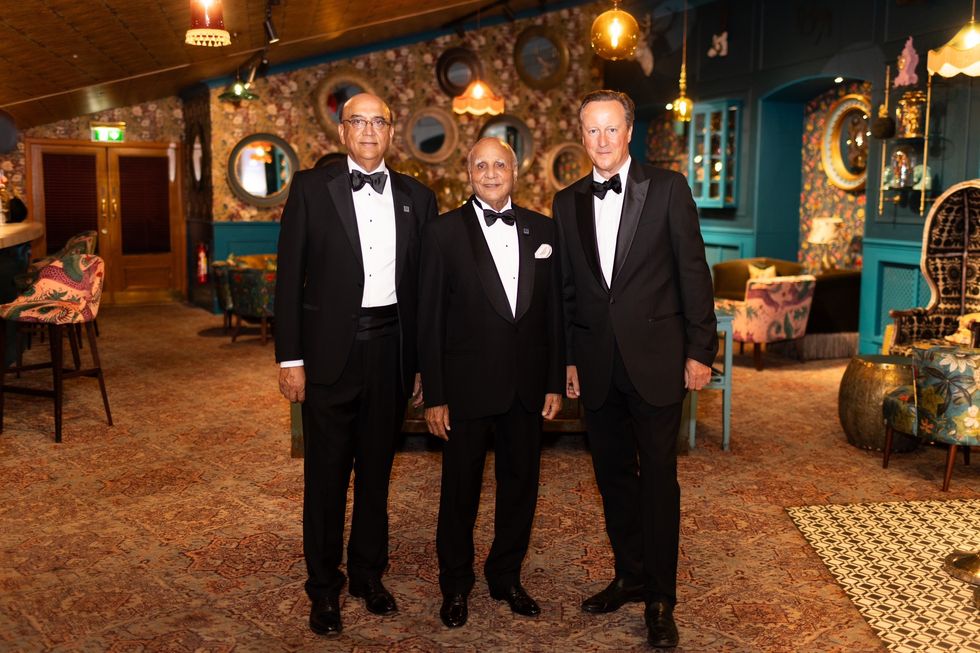A PRAYER meet was held at the Gandhi Hall in the High Commission of India in London on Thursday (24) to pay respects to the victims of the Pahalgam terrorist attack.
Chants of ‘Bharat Mata Ki Jai’ rang out at the event which was led by Indian High Commissioner to the UK Vikram Doraiswami.
The event was addressed by cross-party British parliamentarians, including representatives from diaspora organisations such as Labour Indians, and followed the issue being raised in the British Parliament earlier on Thursday.
“UK stands shoulder to shoulder in the face of cowardly attacks of terrorism against innocent civilians,” said Catherine West, Foreign Office minister in charge of the Indo-Pacific.
“Both the Upper House and in the House of Commons, we had very solemn words from both sides of the House today, remembering those families, those victims. We must pull together at dangerous times like this, emphasise an element of justice, but also put our arms around the families and the communities who are in deep sorrow."
Conservative MP Bob Blackman, who raised the matter in the Commons as chair of the Backbench Business Committee, has called for a UK government statement to reassure the Indian government that the terrorists will be apprehended and that those supporting them will also be brought to justice.

“From my personal perspective, I will strongly support whatever India does… to make sure the terrorists are brought to justice and if they can’t be brought to justice, they must be eliminated,” said Blackman.
Labour Indians chair Lord Krish Raval and vice-chair, Welsh Indian MP Kanishka Narayan, and Baroness Sandy Verma also spoke to express their solidarity with India.
“I’m so grateful that the High Commissioner referenced people of all faiths and none who are in this room and beyond, because every right-thinking person needs to condemn this attack and all other attacks,” said Lord Raval.
Lord Rami Ranger, Indian minister of state for parliamentary affairs L Murugan and Maharashtra state's minister of social justice Sanjay Shirsat have also attended the event.
Shirsat said, “Our sorrow is beyond words. But our strength lies in our unity, and today we stand here as one global Indian family.”
Members of the community will organise a peaceful protest at Pakistan High Commission in London on Friday (25).
Organisers said the protest will demand accountability from Pakistan and call for global action against state-supported terrorist networks.


















 Sir Anwar Pervez
Sir Anwar Pervez  Lord Zameer Choudrey, Sir Anwar Pervez and Lord David CameronBestway
Lord Zameer Choudrey, Sir Anwar Pervez and Lord David CameronBestway